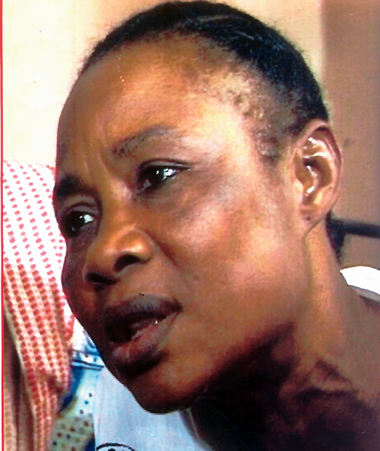
As the curtains roll up for 2011, entertainment buffs have been reminiscing on the happenings that made headlines in the course of last year. In 2010, the entertainment witnessed growth and progress in certain sectors. The year however did not go down without some fatalities that shook the entertainment world to its roots.
One of the biggest deaths that struck the entertainment world was the death of fast rising music act, DaGrin. The triple Hip-Hop World Awards nominee was involved in a motor accident on Wednesday April 14. In the car crash that was to later claim his life, the artiste suffered severe injuries on his head and chest that necessitated his being operated upon at the Lagos University Teaching Hospital (LUTH).
Real name, Olaitan Oladapo, until his death was with Miosofunyin Entertainment where he released his sophomore rap album late last year. He was nominated in the Album of the Year, Artiste of the Year and Best Rap Album categories of the 2010 Hip-Hop World Awards.
His accident came at a time when the music industry was still praying for the quick recovery of Tunde, a member of Styl Plus group who got involved in an autocrash in Abuja few weeks before.
DaGrin was said to have been coming from a night studio session when he ran his newly acquired Nissan Altima into a stationary truck in front of Alakara Police Station, Mushin. On account of the impact of the accident, DaGrin was left hanging between life and death before he was rescued by policemen on patrol. The policemen reportedly called his manager, Tunde, after finding his number on DaGrin’s last dialed numbers.
It was gathered that DaGrin was immediately rushed to Tai Solarin Hospital in Olosha where he was given first aid treatment before he was later transferred to Lagos University Teaching Hospital (LUTH) at Idi Araba in Mushin due to the incapability of the hospital to administer needed treatment.
News of his death broke April 22 on social networks, Twitter and Facebook. DaGrin was officially pronounced dead by the doctors sometime between 8:30pm and 8:45pm local time at LUTH.
The Nigerian movie industry was not left out in the chain of tragedy when the cold hands of death snatched one of its practitioner and television star, Toun Oni. The veteran Nigerian actress, dancer, and vocalist, Toun Oni passed away Wednesday July 7 while being rushed to the hospital.
Reports indicated that she complained of not feeling too well the previous night and then in the morning she felt very weak so she had to be rushed to the St Paul’s Hospital, Ebute-Metta. She passed on before arriving the hospital.
Fondly called Mama T, Oni was one of Nigeria’s most successful crossover actresses. She was also a recipient of the prestigious Order of Niger (OON), conferred on her in 2006. A staunch Jehovah’s Witness, she will be remembered for her many movie roles. Her most memorable roles were undoubtedly on television, with parts in one of Nigeria’s longest running soap opera, Checkmate, and the popular Fuji House of Commotion, where she played Mama Moji. Equally at home in movies and television, she tended to feature more in soap operas, and it is for these that she will be remembered by most fans.
The late actress was to have been part of a stage production to honour Professor Wole Soyinka on the occasion of his 76th birthday. About 76 actors had been put together to act out scenes from Soyinka’s plays, and she was one of them. Her colleagues recalled that before her death, Toun was hale and hearty.
Though she had only a secondary school education, she had so much impact on the theatre scene working mostly on the stage but with a few television and Yoruba movies appearances, chief among them is popular Fuji House of Commotion.
It was a double blow for the movie industry when in June 11, prior to Toun’s passage, Yoruba flick actor, Nureni Aremu joined his departed colleagues. Keen lovers of Yoruba home videos would readily recall the 35-year-old actor cum producer, Nureni Aremu. Most of his friends knew him as Larry. Sadly, the artiste was said to have five unreleased movies in his coffers.
The artiste veered into acting in 1989. Since then, he has weathered the storm of life on one breath and on another, battling to contain the inherent rigours of his chosen career. A day before his demise, the actor/director took his neighbours by surprise when he appeared in a posh Infinity car. Family sources said he took delivery of the automobile the previous day. However, tragedy soon struck when news of his death however filtered in the next day as it was said, met his death at Ofada, near Sagamu, Ogun State.
Reports say that he was inside his car with two of his colleagues, on his way to deliver the script of his latest work to a senior colleague. It was said that the car rammed into a pothole and it somersaulted. To worsen matters, an oncoming truck hit it.
In a state of coma, Nureni and two others involved in the crash were rushed to the Lagos University Teaching Hospital (LUTH), Idi-Araba. Efforts to revive them fell flat. He breathed his last there without the opportunity of saying bye to his beloved mother, sister, wife and son- Ridwan.
During the course of the year, frontline musician and foremost Fuji exponent, popularly known as Ayinde Barrister also passed on to glory. Barrister went by the real name Sikiru Ololade Ayinde.
The death of the man credited with the introduction and establishment of the popular Fuji music genre, occurred in the wee hours of Thursday December 16 at St Mary’s Hospital, Paddington, London, according to his son Wale, who spoke to the media on Thursday.
Ayinde with a healthy line of new generation acts had since taken the Yoruba music genre round the world. Sikiru Ayinde Barrister in his long and glittering music career made waves in the Nigerian entertainment scene. This was in the 70s when he started out. His music career spanned through the 90s.
Barrister was born in Lagos in 1948 and is widely regarded as not just responsible for the introduction of Fuji, but also with training and inspiring of many of the genre’s stars, even as was a leading light and highly influential voice until his death.
Prior to his death, the Fuji exponent, also called ‘Mr. Fuji’ was bedridden and had been to hospitals in Nigeria, India and the UK where he finally died. He was operated upon in India in May this year, but later returned to the country with many of his admirers and relatives thinking the worst was over. Sometime in August this year, there were rumours of his death in some quarters, but the reports were later found to be false.
The artiste was a combatant of the Nigerian civil war, after which he introduced Fuji through a loose combination of sounds from traditional Yoruba forms and oral materials.
At the height of his fame, Barrister headed a 25-piece band known as the Supreme Fuji Commanders as well as the Africa Musical International Ambassadors and had over 40 records to his credit, most of which were very popular even among non-Yoruba speakers.
Among these were New Fuji Garbage, Aiye, Destiny, Superiority, American Special, Barry Special, Awa Oja, Barry Wonder, Current Affairs, Dimensional, Prophecy, The Truth, and Wonders At 40.
Fuji, originally the name of Mount Fuji, the Japanese mountain of love whose name is said to have been adopted by the late maestro because he liked the sound of it, is a combination of the Were beat, Juju, Apala and traditional Yoruba praise poems.
At least two of his children have been introduced to music during his lifetime and another iconic Fuji figure, Wasiu Ayinde Marshall (K1 De Ultimate), has always spoken of being tutored by the late maestro will be among his numerous fans, music disciples and Nigerians in general who will miss him greatly.



















